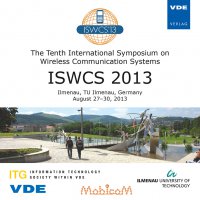A Novel Scheduling Methodology Based on SDL Process Migration for the LTE Higher Layer Protocol on Multi-Core Mobile Terminals
Conference: ISWCS 2013 - The Tenth International Symposium on Wireless Communication Systems
08/27/2013 - 08/30/2013 at Ilmenau, Deutschland
Proceedings: ISWCS 2013
Pages: 5Language: englishTyp: PDF
Personal VDE Members are entitled to a 10% discount on this title
Authors:
Showk, Anas (KROHNE Innovation GmbH, Ludwig-Krohne-Str. 5, 47058 Duisburg, Germany)
Bilgic, Attila (KROHNE Messtechnik GmbH, Ludwig-Krohne-Str. 5, 47058 Duisburg, Germany)
Abstract:
Since data rate in wireless communication systems has exponentially increased during the last decades, serious efforts must be considered in developing mobile terminals to provide enough processing capability. For instance, the computational capabilities provided by single core processors, at reasonable power consumption, is hardly enough for the Long Term Evolution (LTE) protocol stack processing demands. Therefore, multi-core processors are a favorable solution for providing high performance at low power consumption. In this paper, parallel software architecture for the access stratum part of the LTE protocol stack on the mobile terminal side is introduced. The LTE protocol stack is parallelized and executed on a multi-core processor, by employing the Extended Finite State Machines (EFSMs) concurrency. Moreover, the LTE system is scheduled on multi-core by customizing the Specification and Description Language (SDL) scheduler to implement a data pipeline scheduler. Furthermore, a new load balancer scheme is proposed by moving the load balancer to the modem subsystem’s layer and using the SDL process migration concept. The performance speedup on two, three, or four cores, compared to a single core, increases to around 1.95, 2.9, and 3.6, respectively.


